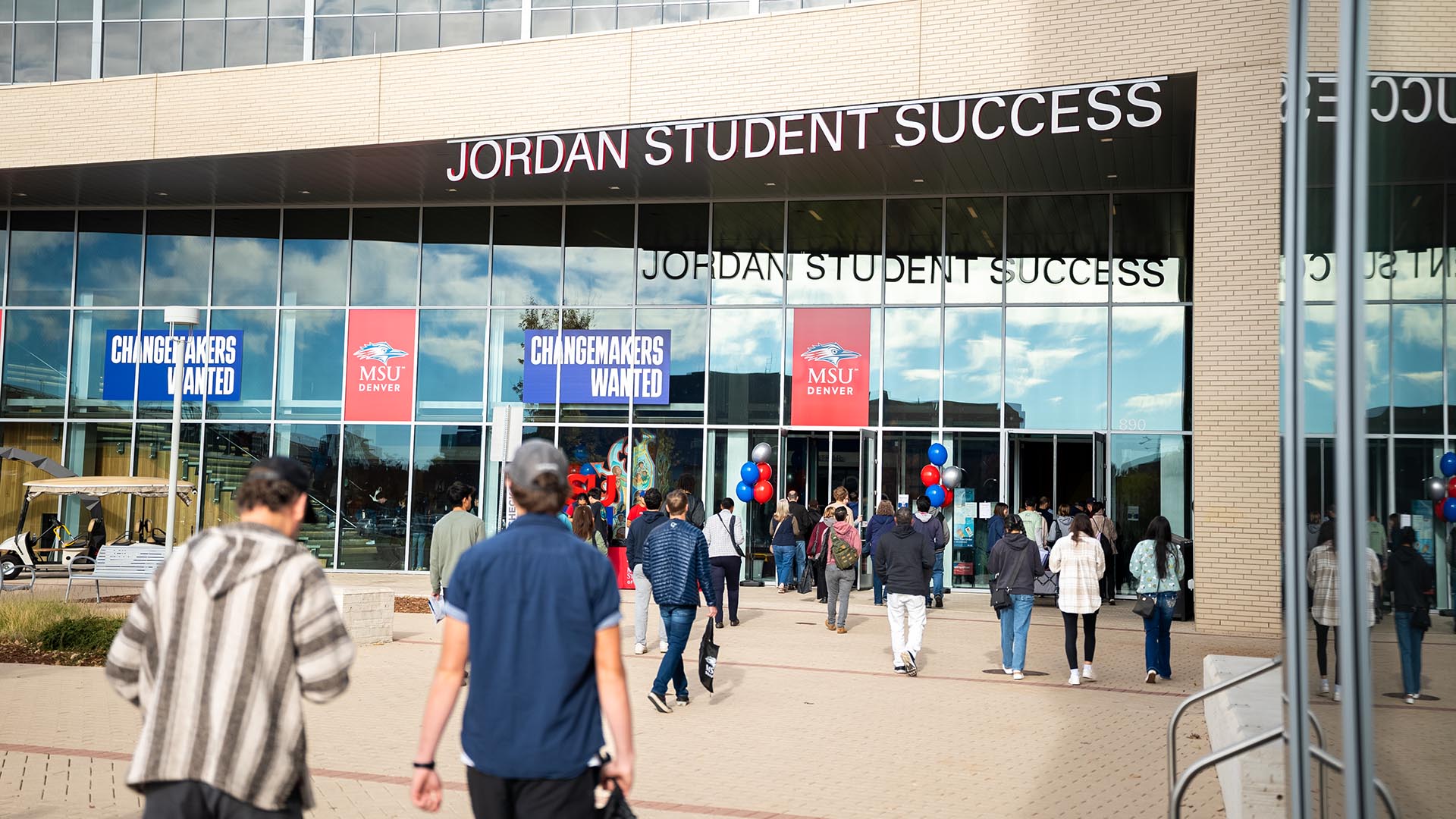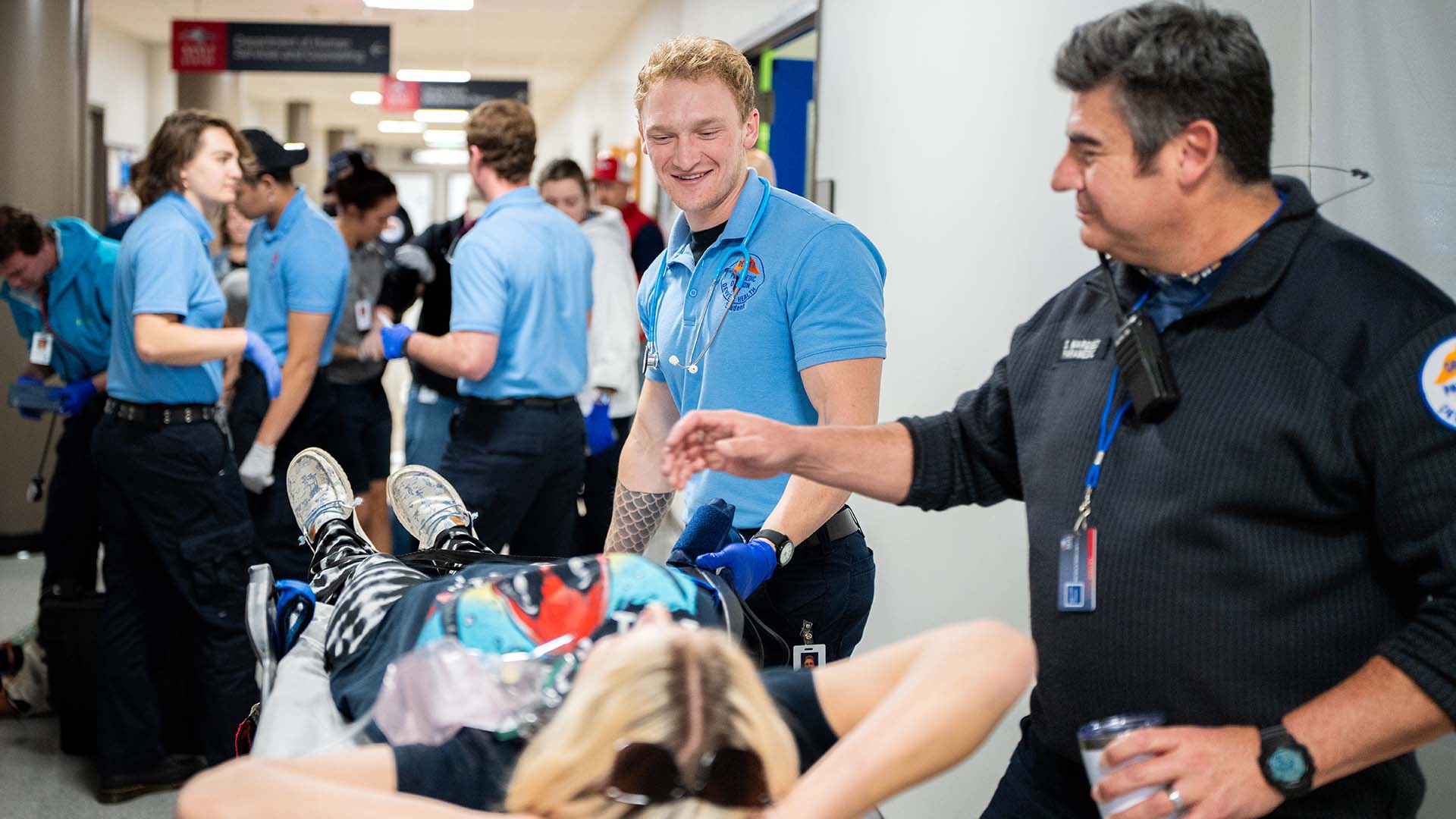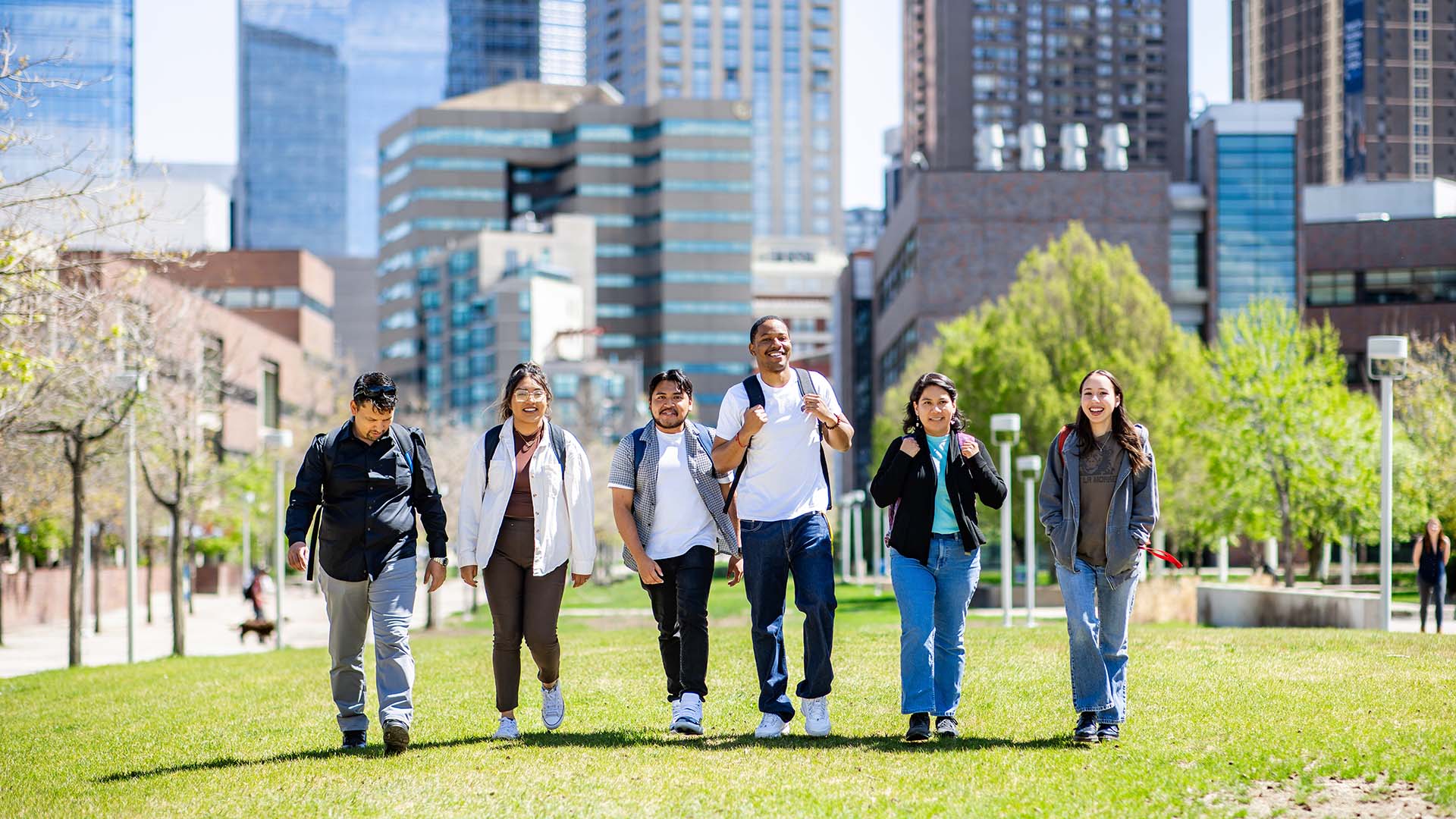For these retirees, education is the fountain of youth
Community members over age 60 are pursuing their passions at MSU Denver while also improving cognitive health — for free.
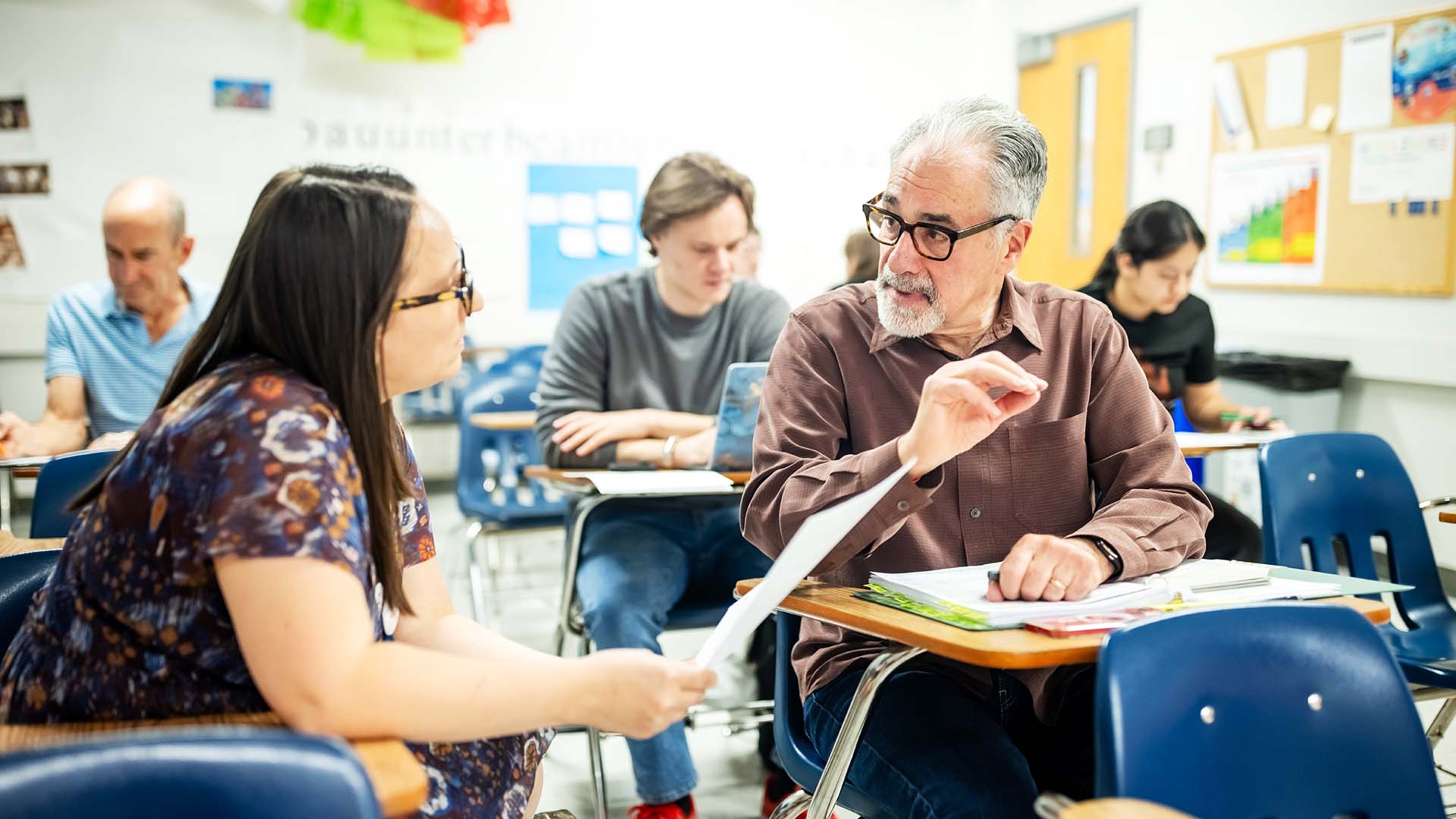
Richard Strouse read an article years ago that suggested learning music or a foreign language could help older people keep their brains active and ward off dementia.
So when he retired from his career as a Certified Financial Planner in 2020, he decided to start auditing French courses at Metropolitan State University of Denver through its Meritus Scholars program. He had already tried his hand at learning the guitar.
“If you heard me play, you’d know why I’m taking French,” Strouse said.
He’s among many community members ages 60 and older who audit classes for free on a noncredit basis at MSU Denver. And it turns out that lifelong learning has many health advantages. In addition to preventing the onset of dementia, as Strouse read years ago, taking classes can sharpen focus, spark new neural connections, encourage socialization and improve memory function, according to the Institute on Aging.
“The Meritus Scholars program is part of Pillar III in the University’s 2030 Strategic Plan,” said Sara L. Jackson Shumate, director of the University’s Center for Individualized Learning. “It promotes diversity on campus and provides new opportunities for community engagement.”
Most courses are eligible for the program based on the instructor’s approval and the availability of space, she added.
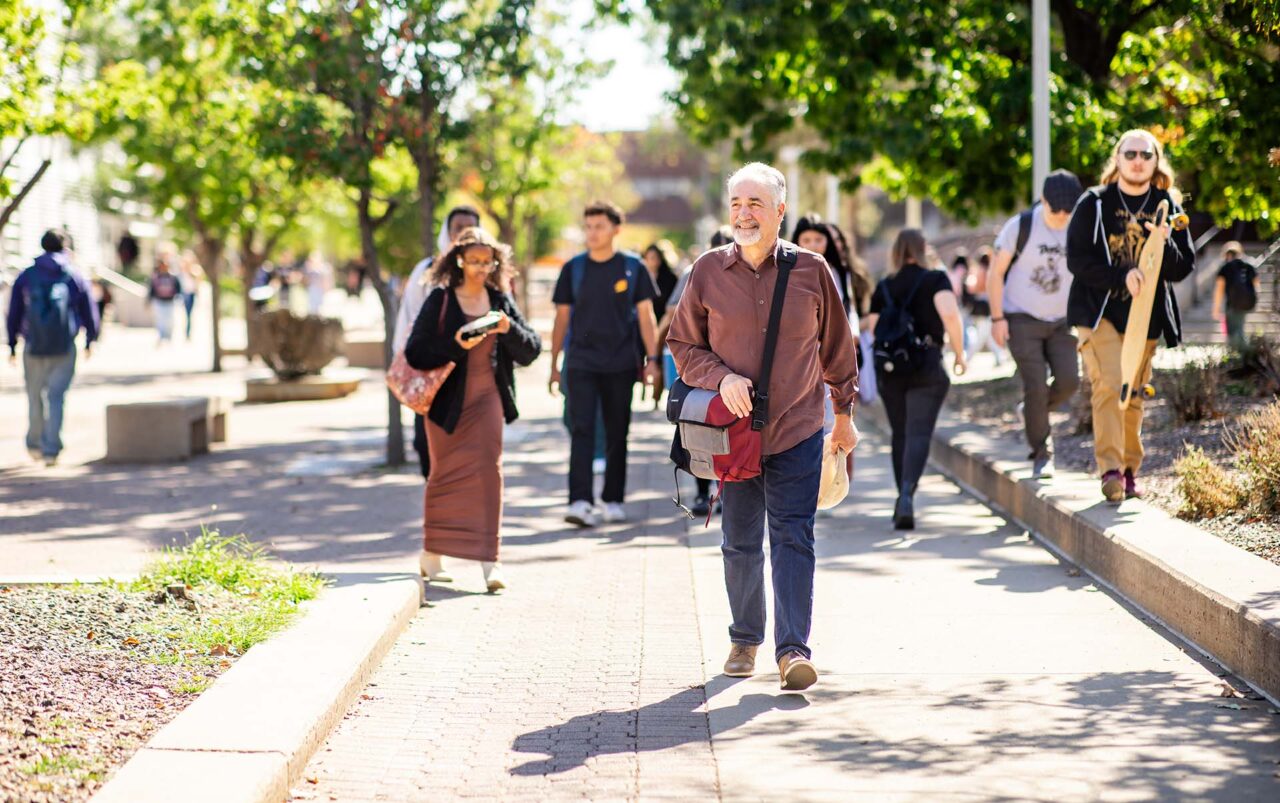
Over the past four years, Strouse, 75, has moved on to upper-level courses, taking the light rail to the Auraria Campus twice a week to study the language alongside and mingle with students half a century his junior.
“The more I took it, the more I liked it,” he said. “It turns out it’s a global language in many ways — there’s so much written in it. It’s spoken on every continent. Broadly speaking, second to English it is the most common language in terms of its acceptance.”
Strouse speaks highly of the instructors he has had and their willingness to have him in class. “They engaged the students,” he said. “They were open to all kinds of questions, didn’t feel intimidated at all and encouraged everybody to work.
“The environment was just incredible. The students want to be there. It’s exciting going to class. They’re good people.”
The younger students appreciate his presence, he added. “I like being around the younger kids because it keeps me fresh,” Strouse said, “but I think the reverse holds true too. The professors by and large embrace the Meritus participants wholeheartedly because they bring some gravitas to the classroom.”
RELATED: Scholarships, resources help adult learners finish what they started
Paul Aldretti, 71, retired two years ago after a career working in climate change, sustainable development and health equity. “I had thought quite a bit before I retired about what I wanted to do because I didn’t want to become a couch potato,” he said.
Aldretti, who taught as an adjunct professor at Naropa University in Boulder for five years, treated himself to a smorgasbord of classes in History, Literature and Environmental Studies and looked forward to in-person classes.
“One of the reasons I took courses was to really engage with people, especially younger people — to have challenging interactions,” he said. “There have been classes I’ve decided not to take because they were online. I really wanted the personal interaction. Especially after the last few years of my work, during Covid.”
Aldretti says he tries to be careful not to monopolize classroom discussions while sometimes offering a different perspective. “The floor is theirs,” he said, referring to his classmates. “It’s the beginning of their journey. If there’s a pause in the conversation, I’ll interject, and I think they appreciate that.”
He has gotten to know some of his fellow students to the point where they stop him to chat on campus. “It’s been really enjoyable,” he said. “We’ve had really interesting conversations, both in class and out of class.”
Aldretti also had praise for his instructors. “The professors that I’ve had at MSU Denver have been very good,” he said. “Having been an adjunct faculty member, I know how much work it takes to be a teacher.”
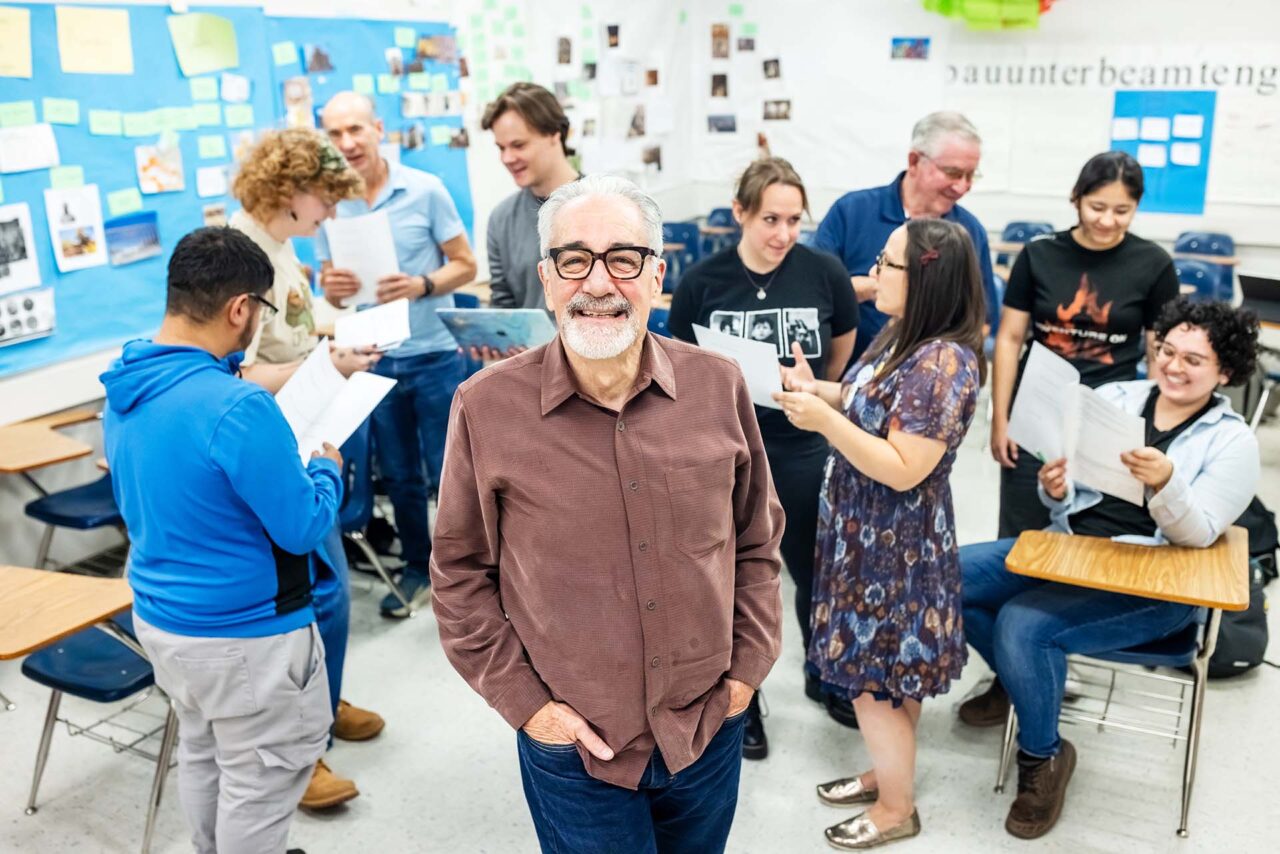
Vince Collins, M.D., 74, nurtured a lifelong dream of playing the saxophone, but the clinical, teaching and administrative responsibilities that accompanied his work as a child-and-adolescent psychiatrist usually took precedence.
“Finally, at age 62, I interviewed several members of the faculty of Metropolitan State University of Denver and really found them to be engaging and bright and welcoming, even to an unconventional student such as myself,” he said. “I decided to start working very part time as a child psychiatrist and began taking classes at MSU Denver for credit. It took me six years to complete the undergraduate requirements for the degree of Bachelor of Music. I graduated in 2018 — as the oldest member of the graduating class.”
But he wasn’t ready to stop. “I started taking Meritus classes, recognizing that I still didn’t know everything that I wanted to know about music and still couldn’t perform with the saxophone at the level I was hoping,” Collins said.
“I continued on basically since that time, with a short hiatus during the pandemic,” he said. “I take a course or two, usually in the Music Department. I broke out of that pattern just last semester when I took a class on the History of American Baseball. It was wonderful, a spectacular course.”
RELATED: After putting her degree on hold for nearly two decades, veteran crosses the finish line
Collins, who describes himself as “the senior citizen who plays in the symphonic band or chamber ensembles at MSU Denver,” said he is “absolutely intrigued by my younger colleagues, as they are by me.”
“They are also intrigued by having Grandpa sitting next to them on the stage,” he said.
Having spent his undergraduate years at Yale University amid the tumult of the civil-rights-and-antiwar era, he sometimes finds himself comparing notes with his fellow students. “There’s a lot of conversation about how things were different when you were in college in 1968,” he said. “I thoroughly enjoy those kinds of interactions with them.”
The students are also aware of his career as a psychiatrist, which provokes some curiosity. “They know I’m a mental-health professional of some sort,” he said. “Largely as a consequence of that, they ask questions of a clinical nature: ‘How do you make the diagnosis of depression? How much marijuana use is too much?’”
Collins said he has found “mutual respect” with his fellow students. “Initially, there is skepticism: ‘Why is this guy on the stage?’” he said. “I’ve not encountered a student who’s been frustrated to have to make accommodations for an old guy. It’s been a delight hanging out with young people.”

